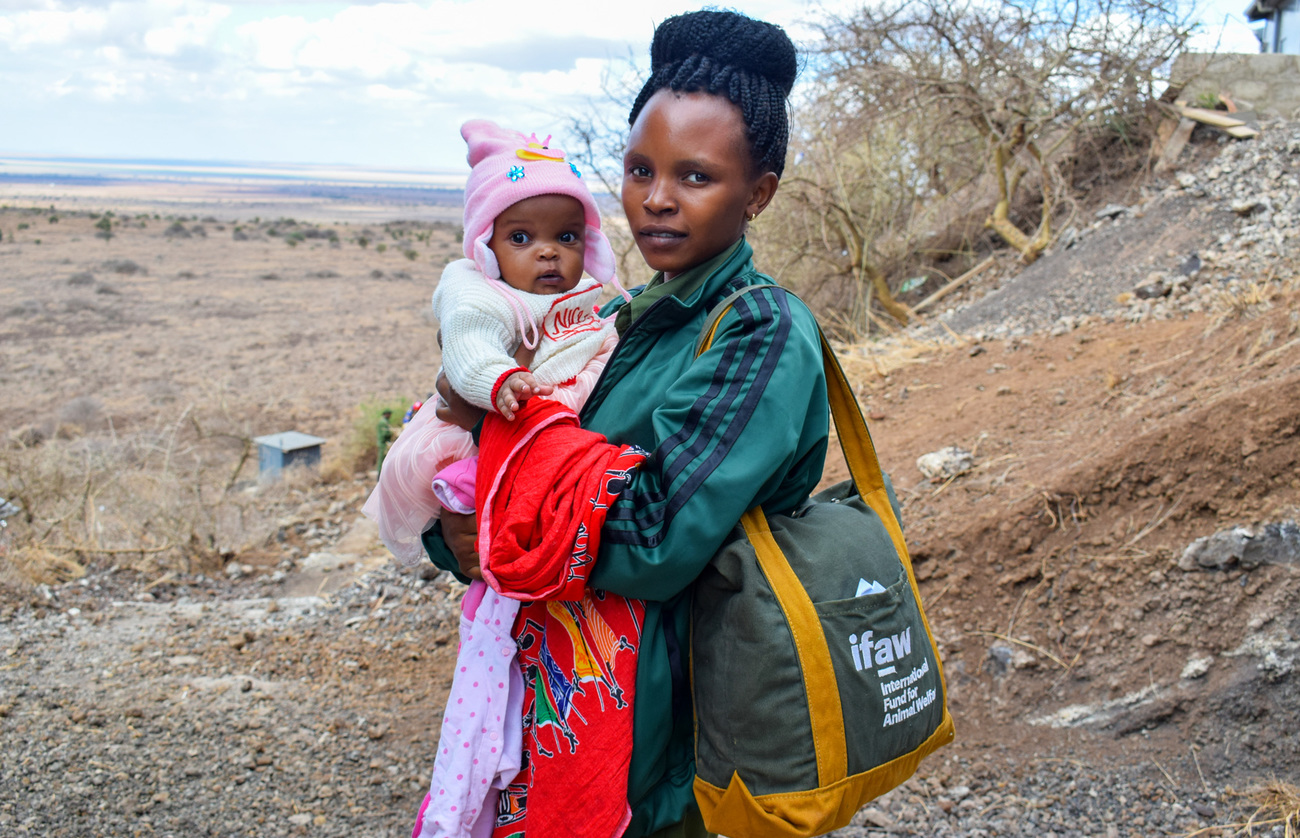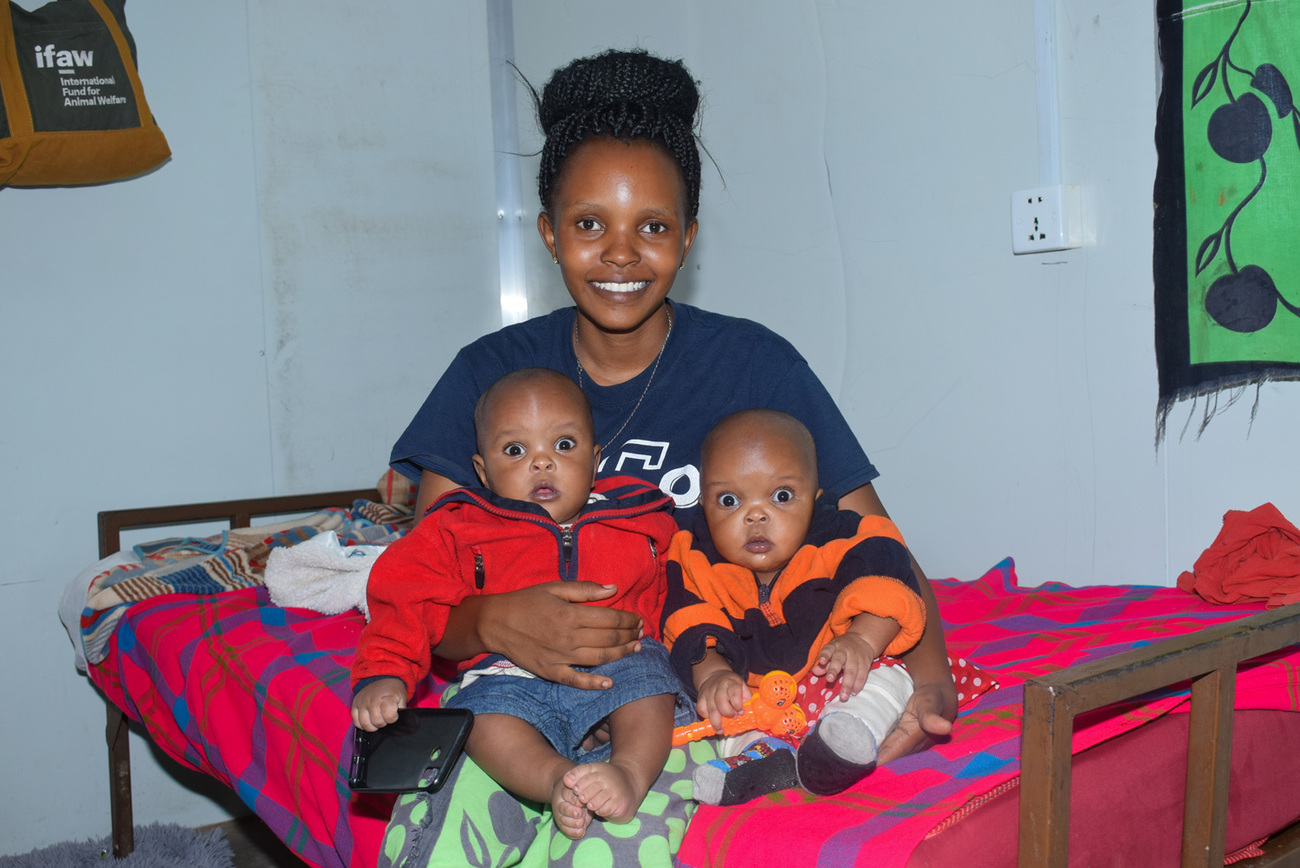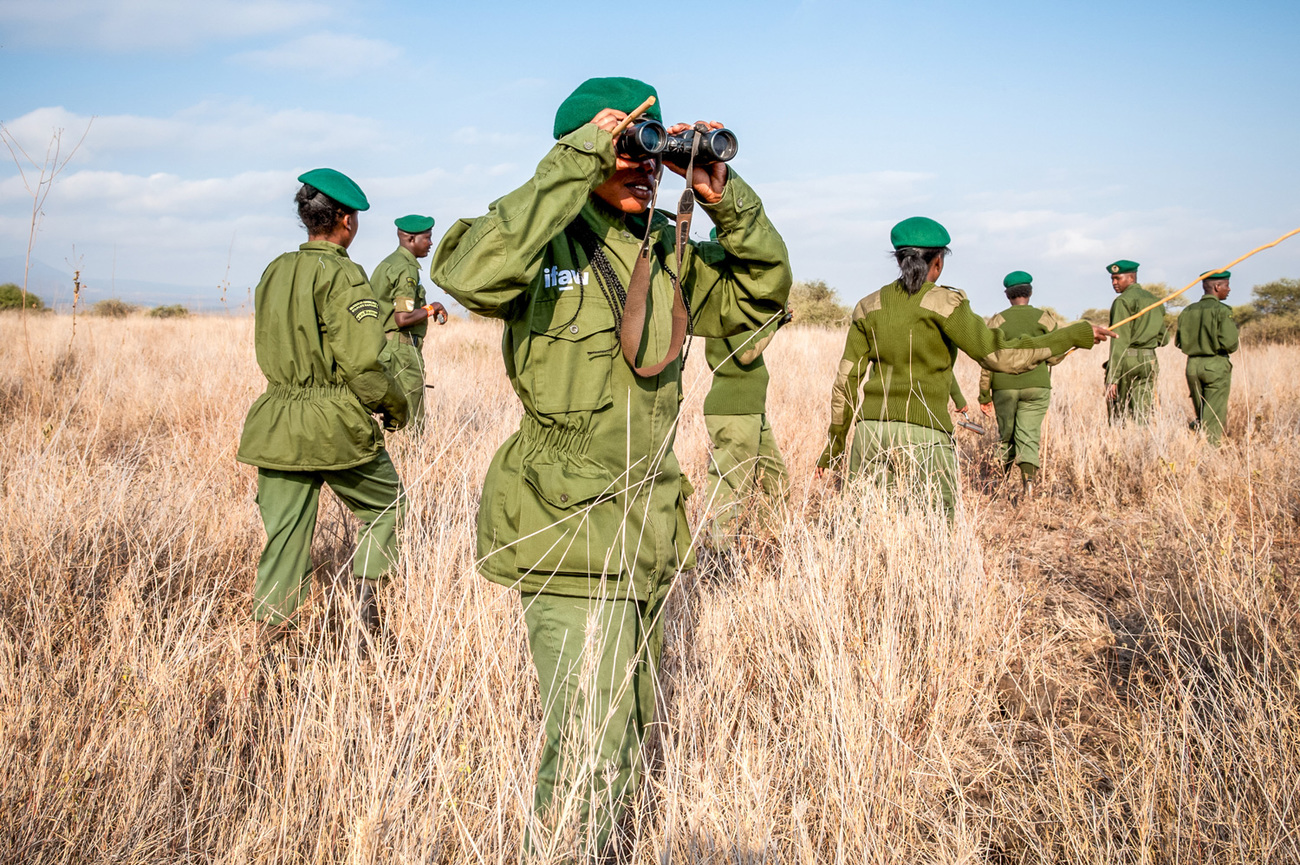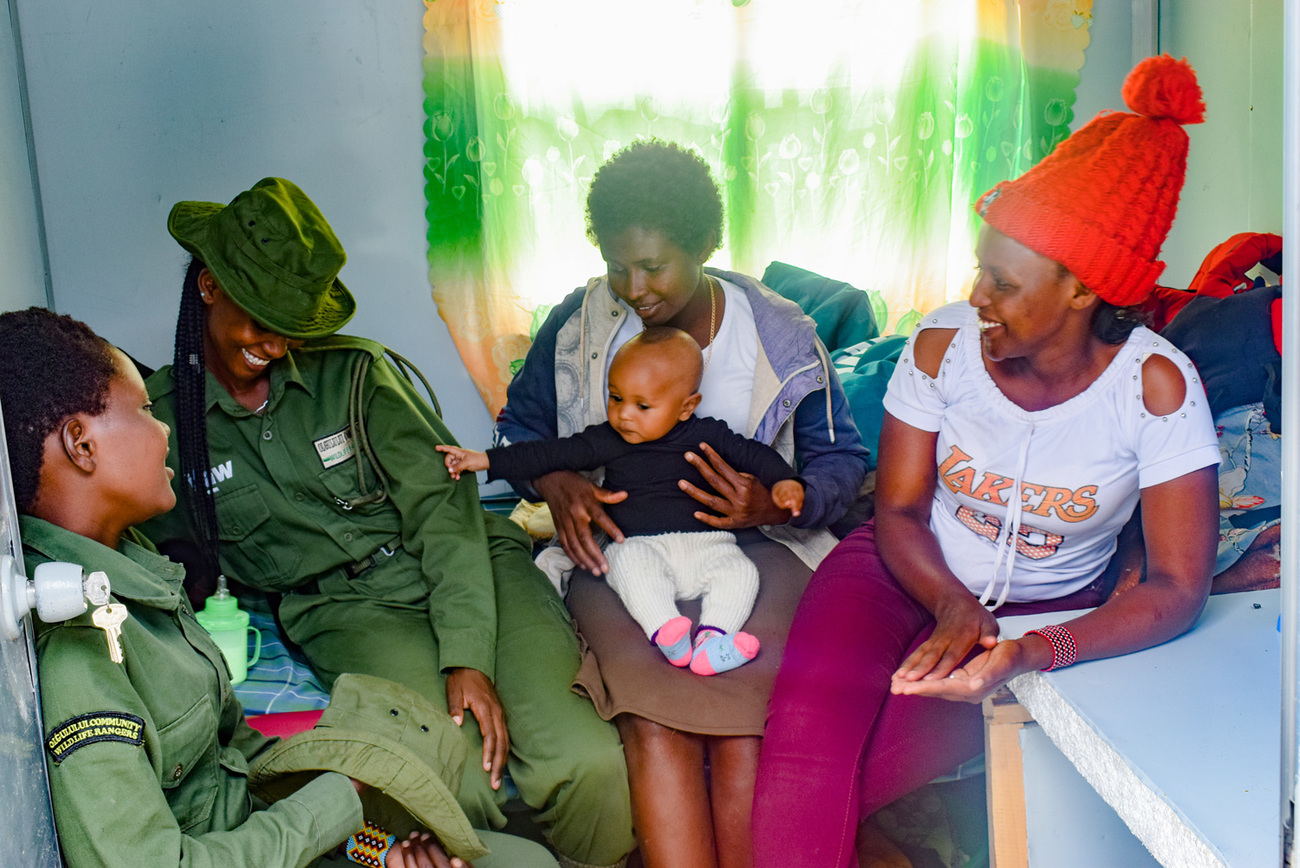Team Lioness - Kenya
We're transforming what it means to be a woman rangerfamily-friendly ranger station allows women protecting Kenya’s wildlife to bring children to work
family-friendly ranger station allows women protecting Kenya’s wildlife to bring children to work

Beatrice Nashipae is a 24-year-old mother of six-month-old twins, Matteo and Natalie. She is also a member of Team Lioness, East Africa’s first all-woman community wildlife ranger unit based in Amboseli, in southern Kenya.
One thing that has made her experience on Team Lioness even more fulfilling is that Matteo and Natalie stay with her at the community ranger base, where their nanny, Charity, can look after them while Beatrice is out on patrol.
“I always wanted to be a protector of the community,” Beatrice says of her career choice. Of Matteo and Natalie, she says, “They are my life.”
tackling barriers for women rangers
Wildlife security is still a male-dominated career in Amboseli. While many complex factors prevent women from becoming rangers, IFAW has already started addressing one fundamental problem: the way rangers are separated from their families for weeks at a time.
Rangers spend three weeks of every month at wildlife security bases that are not comfortable or safe places for children, so they normally see their families just one week a month. In a patriarchal society where women perform the childcare, this separation becomes a huge obstacle for mothers. Some give up their careers when they have babies. Many decide not to join the profession at all.
That’s why IFAW, thanks to support from Margarete Brauer Stiftung, has renovated their ranger base at Risa, Amboseli, with the needs of young families at its heart.
privacy, safety and comfort
The renovation was completed in June 2022, and the difference is remarkable. Each of the 16 Team Lioness rangers now has her own room, instead of sharing one with four colleagues, as was the case at the previous building. The rooms give the rangers better opportunities for resting and for mother-child bonding. And they have their own washrooms, providing privacy and safety for kids at bath time.

The shared areas are also built to make family life easier. With little ones at the base, there is a lot of laundry, so the base has a new laundry area. There is also a crèche, which is secure from wildlife and will be furnished with baby cots, toys, play mats and chairs for caregivers. When Team Lioness rangers go out on patrol, nannies or family members look after their children in a family-friendly environment.
There are currently five children at base, with three more expected once their mothers have finished their three-month maternity leave. In total, 14 of the 16 Team Lioness members are mothers. Seven of them have children under a year old, so caring for their children at the base goes a long way to helping them balance family life with a fulfilling but demanding career.
Lionesses on patrol
Community wildlife ranger work is incredibly challenging, both physically and mentally. It requires walking an average of 20 kilometers per day as rangers patrol areas with rough terrain and thick bushes that often harbor dangerous and unpredictable wildlife, including buffalo, hyenas, snakes and lions.

Patrol work requires a high level of physical fitness, knowledge in bush craft, discipline and teamwork. In addition, Team Lioness rangers are all members of the Maa community, where any profession is seen as a preserve of men, and women are expected to be stay-at-home mothers and wives. Team Lioness rangers have defied culture by acquiring employment in what still remains a largely male career.
That’s why IFAW is committed to addressing infrastructure and other obstacles that prevent women from seeing ranger work as a viable career.
a week at home
Alphine Nankuo is another member of Team Lioness. It is her week off work, so she is at home with her husband and two young sons, four-year-old Melou and seven-month-old Memeri. She gets Melou ready for school, then she sees him off and makes sure he has older children to walk with him.

“It’s not easy to leave my family—especially my child—when I go to work,” says Alphine. “But it makes it a little easier as I have the younger one with me.”
Despite the challenges of bearing so many responsibilities, she sees tremendous value in her work on Team Lioness.
“Having this job enables me to take care of my family and also to protect wildlife and my community.”
Related content
every problem has a solution, every solution needs support.
The problems we face are urgent, complicated, and resistant to change. Real solutions demand creativity, hard work, and involvement from people like you.